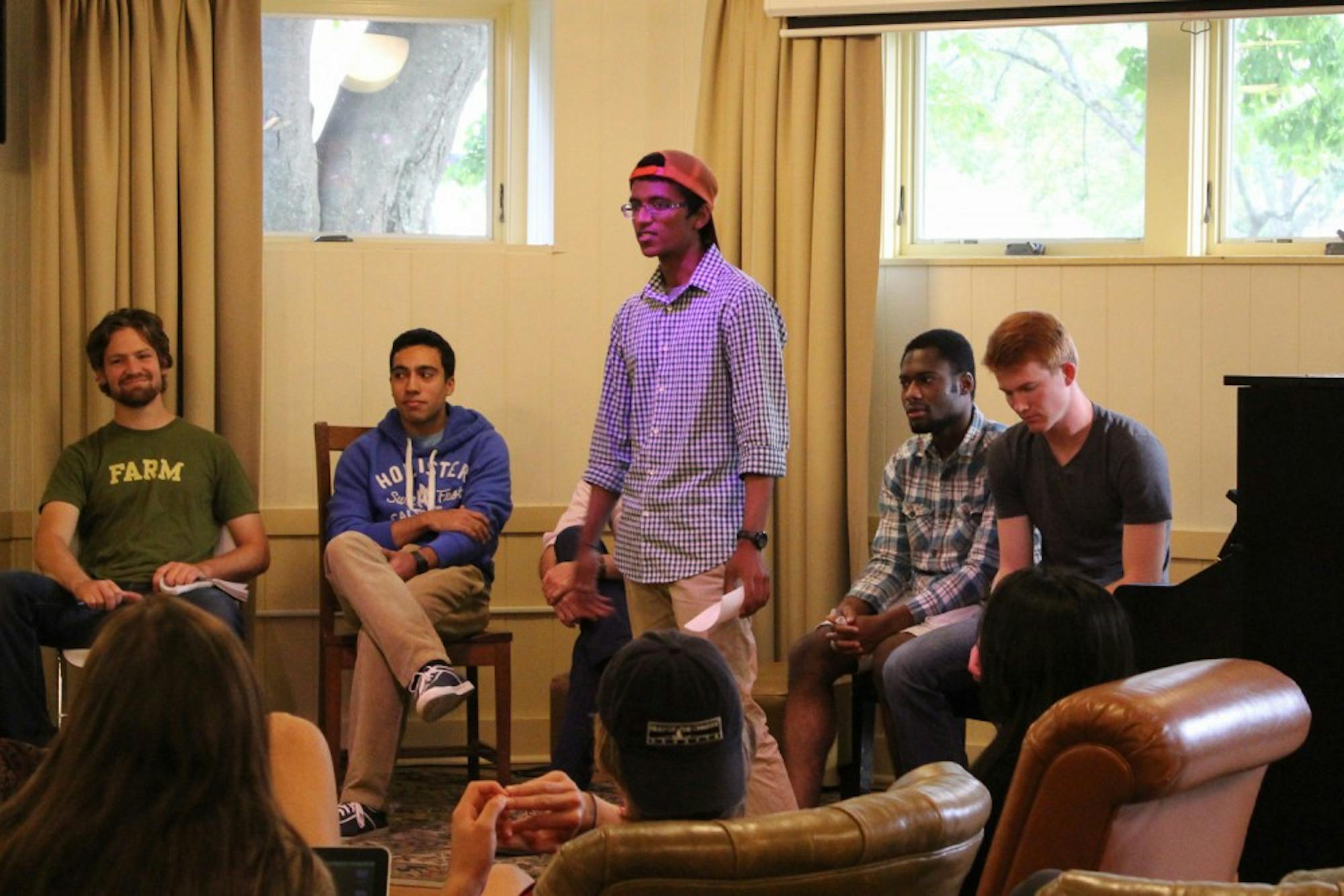Five men reflected on community, pressure to rush and what it means to identify as “unaffiliated” in a panel Thursday night. The panel came a day before the start of Interfraternity Council recruitment.
Nate Goss ’16 opened the panel by sharing his experiences with the Ledyard Canoe Club where he said many unaffiliated students became his “role models.” He cited an uneasiness about fraternity environments as motivating his decision not to rush, noting that while “bad things” happen all across campus, he did not feel comfortable being associated with a space where negative activities could occur “beyond his control.”
Goutham Kandru ’16 said the Frisbee team allowed him to get to know upperclassmen. He said that the fact that the captain knew everyone by name after the first day of practice demonstrated the warmth of the team. While he said he did not feel unwelcome at fraternities, Kandru said he never spent a lot of time in those spaces and thus decided not to rush. He also cited dues, which can amount to hundreds of dollars per term, as something to consider when deciding whether or not to participate.
Finding “the right people” does not always happen immediately, Samuel Kernan ’14 said, noting that he enjoyed meeting people through the Dartmouth Outing Club, the organic garden and the Multi-Faith Council.
Senyo Ahedor ’15 said that he fostered an “informal community” by casually connecting with a group of friends rather than through formal campus organizations or sports teams. Ahedor said that even without the formal organization of a fraternity, he found a great network of meaningful people.
“We don’t have a house, we’re not funded by the College, we don’t pay dues to one another, but we still spend time together,” Ahedor said.
Ambroise Decilap ’15 said he resolved not to rush because he worried that by conforming to the group identity of a Greek house he would sacrifice his individual identity.
Decilap said he reconsidered rush after participating in Sheba Lite and playing on a fraternity intermural team sophomore summer. He socialized with many affiliated people and decided to try it out. He rushed junior fall but did not receive a bid from the house he wanted to join and remains unaffiliated.
On campus, students use house affiliation as a way to gauge someone’s personality, Decilap said. He noted that not having that identity was difficult yet liberating.
“It’s not social death,” Decilap said.
David Cordero ’16 said that he did not want to dismiss being affiliated without experiencing it firsthand. After rushing and receiving a bid sophomore fall, he decided to de-pledge, Cordero said.
“It didn’t resonate with the type of person I was,” Cordero said. “I like to do a variety of things in a variety of social spaces with a variety of people.”
Cordero said that as an unaffiliated student, he has had the time to get involved in a number of activities on campus, including the equestrian team.
He said that he still gets invited to play pong, participate in tails and go to formals. Decilap noted the College’s increased support of unaffiliated students, through Hop Garage Thursdays and the new living learning communities.
“The main barrier to not rushing is fear of social isolation,” Ben Packer ’17 said.
Packer and others in attendance said they appreciated the positive sense of solidarity the panel provided for unaffiliated students. Sam Greydanus ’17, who decided not to participate in rush, said that he found the number of independent students encouraging. Jake Lyon ’17 said that as rush dominates sophomore fall he has questioned his decision not to rush as he fears “missing out.” He said he left the panel feeling part of a group and comfortable with his decision to be unaffiliated.
“Don’t give up on things you want for yourself,” Decilap said. “Go out there and find it, or better yet, create it, because the opportunity is out there.”
About 40 students attended the event, which was held in One Wheelock.
This article has been revised to reflect the following correction.
Correction appended: September 26, 2014
Inter-Community Council was a co-sponsor, it was not responsible for organizing the event as the article originally stated.




